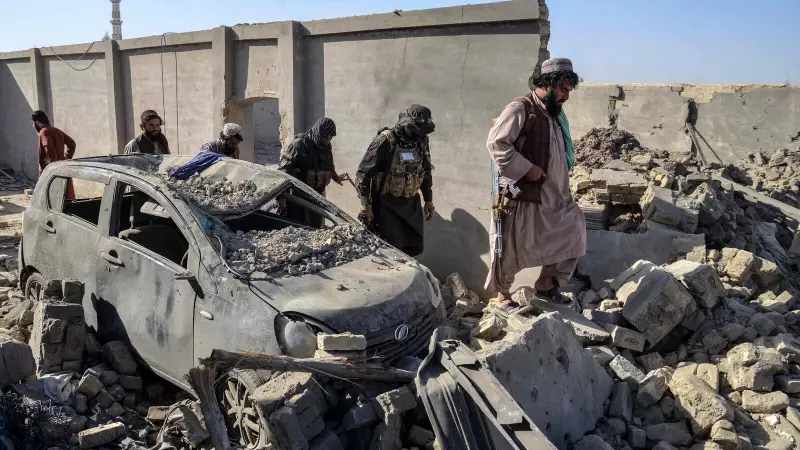
In a dramatic escalation of cross-border tensions, Afghanistan has accused Pakistan of shattering a fragile ceasefire with fresh air strikes that claimed at least 10 lives in the early hours of Monday. The Taliban-led government has vowed strong retaliation, signaling a dangerous new chapter in the strained relations between the two neighboring nations.
What We Know About the Latest Attacks
According to Afghan officials, Pakistani military aircraft conducted precision strikes in the eastern provinces of Khost and Paktika around 3 AM local time. The attacks targeted residential areas in Barmal district of Paktika and Sepera district of Khost province, leaving devastation in their wake.
The human cost has been significant:
- At least 10 civilians confirmed dead, including women and children
- Multiple injuries reported, with several victims in critical condition
- Residential properties destroyed in the bombardment
- Local communities fleeing the border areas amid fears of further strikes
Afghanistan's Stern Warning
The Taliban government has responded with unprecedented severity. In an official statement, Afghanistan's spokesperson Zabihullah Mujahid declared: "The Islamic Emirate of Afghanistan strongly condemns these attacks and views them as clear hostility and violation of our sovereignty. Pakistan will bear responsibility for the consequences of this aggression."
Mujahid emphasized that the attacks occurred despite an existing understanding between the two nations to resolve differences through dialogue rather than military action.
Background: The Simmering Border Conflict
This latest violence comes against the backdrop of increasing border tensions that have characterized Afghanistan-Pakistan relations since the Taliban returned to power in 2021. The disputed Durand Line, a 2,600-kilometer border established during British colonial rule, has been a persistent flashpoint.
Key factors driving the conflict:
- Pakistan's concerns about militant groups operating from Afghan soil
- Afghanistan's objections to border fencing by Pakistan
- Reciprocal accusations of harboring terrorist elements
- Historical disputes over tribal territories along the Durand Line
Regional Implications
The escalating conflict threatens to destabilize an already volatile region. Neighboring countries, including Iran and China, have repeatedly called for peaceful resolution of disputes between the two Islamic nations. The international community watches with concern as the situation develops, fearing broader regional implications.
As both nations appear to be digging in their heels, the path to de-escalation seems increasingly challenging. With Afghanistan promising retaliation and Pakistan showing no signs of backing down, the coming days could prove critical for regional stability in South Asia.





